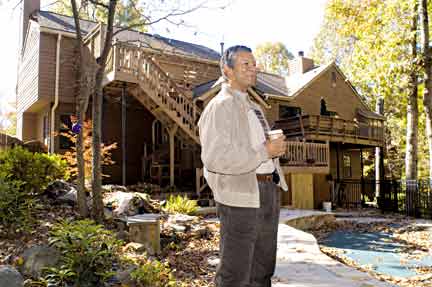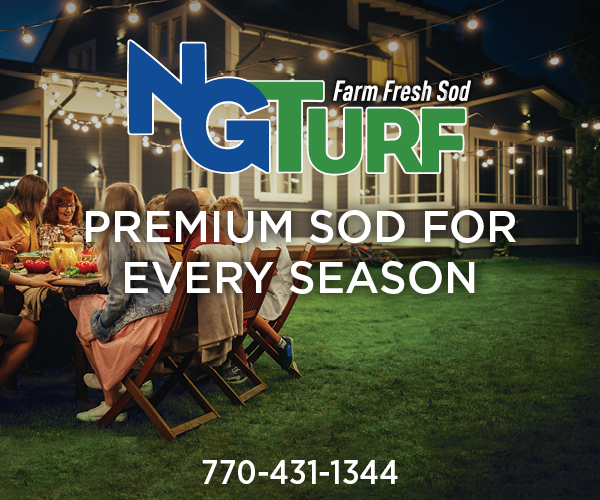Q&A: Home Vegetable Gardening the Organic Way

By Holly Brooks, principal, King Landscaping

Q: What are some good plant choices?
A: Incorporating typical annual edibles – like tomatoes, basil or eggplant – is a good way to ensure continuing variety in your landscape. I think people tend to forget about perennial edibles as part of their landscape structure. Blueberries, for example, aren’t a compact or neat foundation plant but they can work really well on a wood line or a fence. There are other perennial edibles such as asparagus, raspberries, black berries, figs and more that will reward you over multiple years from a single planting. The Atlanta area has a very wide plant palette that encompasses many edibles.

Photo courtesy of MOSAIC Group / King Landscaping / Gregg Willett
The key is to select plants that are best suited to your yard and climate, ensure that you have good soil, and don’t be afraid to pop vegetables and herbs in throughout your landscape – it doesn’t have to be a row garden.
Q: What does “organic gardening” mean?
A: Organic gardening is the practice of letting nature manage itself first, then intervening only if needed by mechanical methods or, if you have to, non-synthetic products.
People fail to understand how powerful organic gardening really is. An organic garden is a place where insects and microbial activity thrive. Good insects will control bad insects, healthy soil will keep fungus at bay, and you will benefit.
Q: Is soil quality important?
A: Absolutely! Plants will not thrive unless their roots are in healthy soil. A soil test is a good way to learn about the condition of your soil. But also look at more obvious signs. Can you put a shovel in the ground, remove it and find a worm in every shovel? Worms and other decomposers living in the ground continually chew through dead plant material creating compost which in turn feeds and provides air to the roots of your plants. Feed the soil, and the soil will feed the plants. Having a healthy insect and microbial population in your garden is the only way to have true success with organic gardening.
Q: Aren’t some insects beneficial?
A: Most insects do healthy things for your garden. In organic gardening, insects fall into one of three categories: pollinators, predatory, and decomposers. All three are necessary to an organic garden.
Butterflies, moths and bees are examples of pollinators. Predatory insects such as parasitic wasps, ladybugs and some beetles hunt for bad insects. Worms, pillbugs, earwigs and the like are decomposers.
Everything has a job to do, and they all do it well. But when we intervene and spray insecticides, we do more harm than good. Even applying heavy synthetic fertilizers impedes the work of the decomposers.
So get over your phobia of insects and understand that insects are there to help you, not hurt you.
Q: Is there a good resource for learning about organic gardening?
A: Marie Rodale has written several guides on organic gardening. Organic Gardening Magazine also is a good resource.
Get more expert advice from Atlanta home improvement professionals.

How to Adjust Your Shutters on Out-of-Reach Windows

Breaking New Ground

Selecting and Protecting Wood for DIY Projects

Award-Winning Kitchens, Baths, Interior Design and More

Atlanta’s NKBA Designs of Distinction 2019 Winners

100 Things to Know Before You Remodel

What’s the simplest way to upgrade your window treatments?








